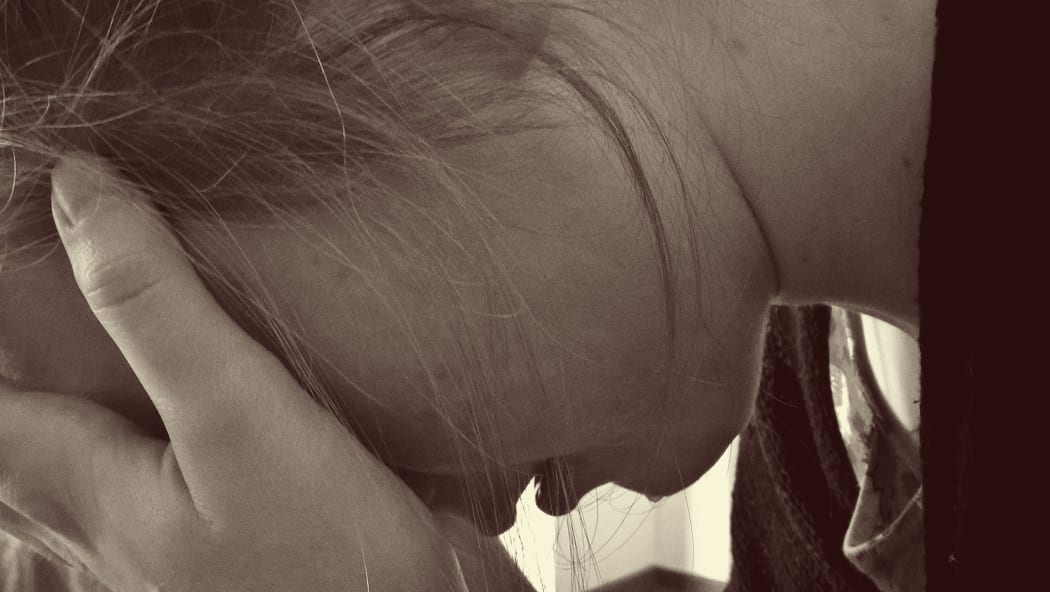Now is not an easy time to be a teenager and those who have anxiety need help from their parents to manage it, parenting consultant Nathan Mikaere-Wallis says.
Adolescent brains are still "under construction" and teens who have anxiety need help with strategies to manage it.
He talks about what parents can do.
Anxiety is the number-one thing teachers and parents ask him about lately, Mikaere-Wallis says.
"Everyone wants to know why is anxiety so prevalent? Why are so many kids anxious?"
Part of the problem is that we don't currently have a working definition of what anxiety is.
"The teenager is going 'I've got anxiety, I'm having an anxiety attack, I've got a disorder' and the parent's going 'Don't be stupid. Teenagers have always gotten anxious. It's just a normal part of being a human. Deal with it."
People can be quick to say that this generation of teenagers has it easy, Mikaere-Wallis says, but he believes the opposite.
"This generation has grown up thinking terrorism is normal and school shootings are normal, both their parents are at work…"
Add to that load the "whole other job" of social media.
In his generation and those before, high school students had assessment anxiety only twice a year - at mid-year and at end-of-year exams, he says.
Now from the age of five onwards, kids are constantly under assessment.
Part of managing anxiety is building resilience, which is greatly helped by having a parent at home, he says.
"Someone who has had an at-home parent is usually much better at self-calming, and that's part of managing anxiety. Because basically, they've had someone sit there and help them do it for hours, whereas in a childcare centre there's less chance that will happen."
Binge drinking also adds stress to teenager's vulnerable brains.
"You start to add all these things together and it's kind of not surprising there's a lot of anxiety."
The biggest at-risk group are first-born girls at medium-to-high decile schools, he says.
What are the signs?
Number one – if your child mentions to you they're anxious, listen to them.
"If they say they're anxious there's an issue there."
Withdrawal can be another sign, but a difficult one to pin down as both anxious and non-anxious teenagers tend to go off by themselves naturally.
"An excessive amount of [withdrawing], an inability to connect, the kid just looking sad, stopping doing normal activities, things they used to enjoy, becoming socially reclusive" could all be signs, he says.
What you can do
The first step (which is the same for interacting an adult having emotional difficulty) is to acknowledge what they're feeling.
"If you deny a person's emotion that causes a physiological response in the lower brain which stops them getting proper access to their empathy.
"You're gonna get a much more engaged, articulate, 'able to understand consequences' person after you've acknowledged their emotion – so it's always a good idea to do that first."
We all get anxious, but adults have the ability to manage it, whereas the teenage brain simply doesn't, he says.
"The very part of their mind that should be saying 'Right, if I'm getting anxiety I should exercise well and I should eat well, that is the very part of the brain that's shut for renovations during adolescence – so I don't think we can put it all back on the teenager to manage themselves, they need parenting."
Ask them questions and help them with strategies, he says.
"What are you doing to look after yourself? Is your diet okay? Are you eating too much sugar? If you're eating too much sugar, you're binge-drinking – you're arousing the human stress response system – and that won't help your anxiety at all."
"I don't expect them to cook their own tea to eat healthy. If I want them to eat them to eat healthy I'm gonna aid them by cooking tea. If I want them to look after themselves and get to bed on top I'm gonna remind them."
Enough sleep is key to manage anxiety – and an adolescent whose bedtime is regulated by a parent is at a huge advantage, he says.
Check their diet for anything excessive.
"Drinks that are really loaded with sugar and caffeine will really arouse the human stress response system."
Put a ban on devices in the bedroom – they can be charged overnight in the kitchen.
"At a certain time, 9:30, they're in the kitchen, so there's not even the option."
"I understand that you don't have much melatonin in your brain, that you're not very tired, but staying up and playing PlayStation isn't going to help. By eleven o'clock the lights are out, you're in bed."
Teenagers can't be expected to self-regulate when it comes to getting enough sleep, Mikaere-Wallis says.
"They will answer the text at three o'clock in the morning and get into the conversation even though it's not good for them and they're already sleep-deprived.
"Be their cortex for them during adolescence."
Educator, researcher and parenting commentator Nathan Mikaere-Wallis is the director of X-Factor Education.


